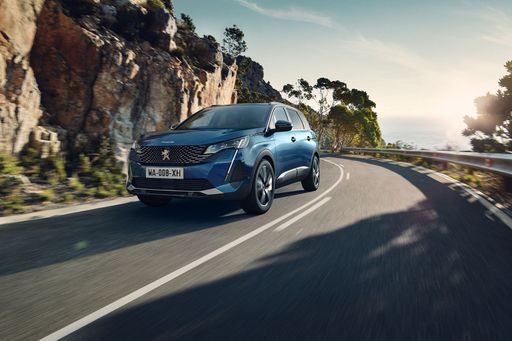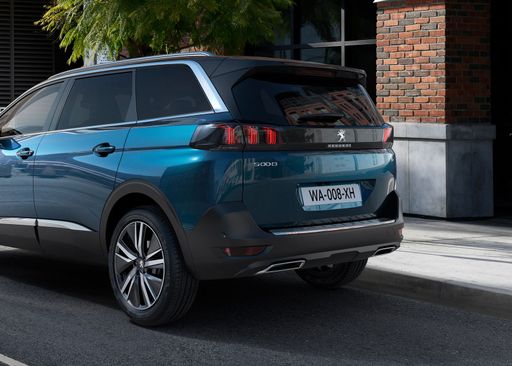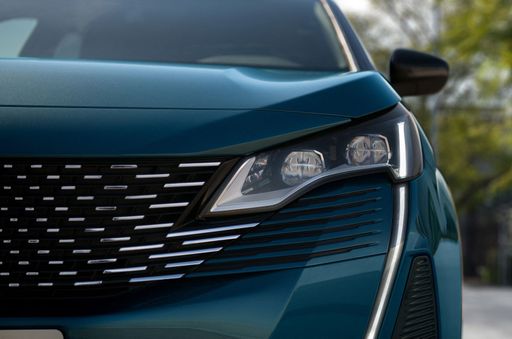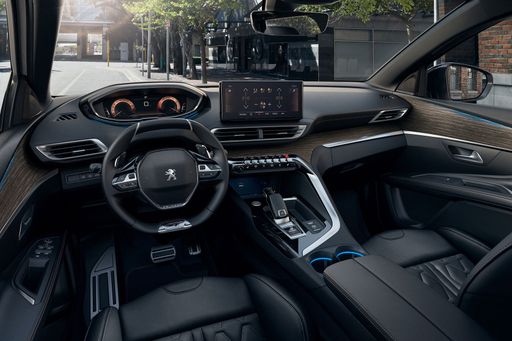Peugeot 5008 vs BYD Seal 6 – Differences & prices compared
Two cars, one duel: Peugeot 5008 meets BYD Seal 6.
Which one wins in performance, efficiency and value for money? Find out now!
Costs and Efficiency:
Price and efficiency are key factors when choosing a car – and this is often where the real differences emerge.
BYD Seal 6 has a minimal advantage in terms of price – it starts at 36800 £, while the Peugeot 5008 costs 37600 £. That’s a price difference of around 746 £.
Fuel consumption also shows a difference: Peugeot 5008 manages with 1 L and is therefore convincingly more efficient than the BYD Seal 6 with 1.70 L. The difference is about 0.70 L per 100 km.
As for range, the Peugeot 5008 performs clearly better – achieving up to 674 km, about 574 km more than the BYD Seal 6.
Engine and Performance:
Power, torque and acceleration say a lot about how a car feels on the road. This is where you see which model delivers more driving dynamics.
When it comes to engine power, the Peugeot 5008 has a noticeable edge – offering 325 HP compared to 212 HP. That’s roughly 113 HP more horsepower.
In acceleration from 0 to 100 km/h, the Peugeot 5008 is distinct quicker – completing the sprint in 6.50 s, while the BYD Seal 6 takes 8.50 s. That’s about 2 s faster.
In terms of top speed, the Peugeot 5008 performs a bit better – reaching 220 km/h, while the BYD Seal 6 tops out at 180 km/h. The difference is around 40 km/h.
Space and Everyday Use:
Whether family car or daily driver – which one offers more room, flexibility and comfort?
Seats: Peugeot 5008 offers clearly perceptible more seating capacity – 7 vs 5.
In curb weight, Peugeot 5008 is slight lighter – 1700 kg compared to 1710 kg. The difference is around 10 kg.
In terms of boot space, the Peugeot 5008 offers clearly more room – 994 L compared to 500 L. That’s a difference of about 494 L.
In maximum load capacity, the Peugeot 5008 performs distinct better – up to 2310 L, which is about 775 L more than the BYD Seal 6.
When it comes to payload, Peugeot 5008 noticeable takes the win – 699 kg compared to 435 kg. That’s a difference of about 264 kg.
Who comes out on top?
Overall, the Peugeot 5008 shows itself to be outperforms in nearly all aspects and secures the title of DriveDuel Champion.
It convinces with the more balanced overall package and proves to be the more versatile choice for everyday use.

Peugeot 5008
Peugeot 5008
The Peugeot 5008 impresses with its sleek design and spacious interior, making it an appealing choice for families and those needing extra room. Its elegant exterior lines are complemented by a well-crafted cabin that offers both comfort and versatility, ideal for longer journeys or everyday use. With a range of modern features and technology, the 5008 delivers a balanced blend of style and functionality that enhances the driving experience.
details @ media.stellantis.com
@ media.stellantis.com
 @ media.stellantis.com
@ media.stellantis.com
 @ media.stellantis.com
@ media.stellantis.com
 @ media.stellantis.com
@ media.stellantis.com
BYD Seal 6
The BYD Seal 6 is a captivating electric sedan that captures attention with its sleek design and modern aerodynamics. With a strong focus on sustainability, it offers an impressive electric driving experience, combining efficiency with cutting-edge technology. The Seal 6 stands out in the EV market for its luxurious interior and innovative features, making it a strong contender for drivers looking to embrace the future of transportation.
details

|
|
|
|
|
Costs and Consumption |
|
|---|---|
|
Price
37600 - 53600 £
|
Price
36800 - 42800 £
|
|
Consumption L/100km
1 - 5.6 L
|
Consumption L/100km
1.7 - 2.6 L
|
|
Consumption kWh/100km
17.8 - 18.6 kWh
|
Consumption kWh/100km
-
|
|
Electric Range
79 - 674 km
|
Electric Range
50 - 100 km
|
|
Battery Capacity
0.4 - 96.9 kWh
|
Battery Capacity
-
|
|
co2
0 - 127 g/km
|
co2
38 - 60 g/km
|
|
Fuel tank capacity
55 L
|
Fuel tank capacity
65 L
|
Dimensions and Body |
|
|---|---|
|
Body Type
SUV
|
Body Type
Estate
|
|
Seats
5 - 7
|
Seats
5
|
|
Doors
5
|
Doors
5
|
|
Curb weight
1700 - 2406 kg
|
Curb weight
1710 - 1805 kg
|
|
Trunk capacity
294 - 994 L
|
Trunk capacity
500 L
|
|
Length
4791 mm
|
Length
4840 mm
|
|
Width
1895 mm
|
Width
1875 mm
|
|
Height
1694 mm
|
Height
1505 mm
|
|
Max trunk capacity
1815 - 2310 L
|
Max trunk capacity
1535 L
|
|
Payload
534 - 699 kg
|
Payload
435 kg
|
Engine and Performance |
|
|---|---|
|
Engine Type
Plugin Hybrid, Electric, Petrol MHEV
|
Engine Type
Plugin Hybrid
|
|
Transmission
Automatic
|
Transmission
Automatic
|
|
Transmission Detail
Dual-Clutch Automatic, Reduction Gearbox
|
Transmission Detail
CVT
|
|
Drive Type
Front-Wheel Drive, All-Wheel Drive
|
Drive Type
Front-Wheel Drive
|
|
Power HP
145 - 325 HP
|
Power HP
184 - 212 HP
|
|
Acceleration 0-100km/h
6.5 - 10.2 s
|
Acceleration 0-100km/h
8.5 - 8.9 s
|
|
Max Speed
170 - 220 km/h
|
Max Speed
180 km/h
|
|
Torque
230 - 511 Nm
|
Torque
-
|
|
Number of Cylinders
3 - 4
|
Number of Cylinders
4
|
|
Power kW
107 - 239 kW
|
Power kW
135 - 156 kW
|
|
Engine capacity
1199 - 1598 cm3
|
Engine capacity
1498 cm3
|
General |
|
|---|---|
|
Model Year
2024 - 2025
|
Model Year
2025
|
|
CO2 Efficiency Class
B, A, D
|
CO2 Efficiency Class
B
|
|
Brand
Peugeot
|
Brand
BYD
|
Is the Peugeot 5008 offered with different drivetrains?
Available configurations include Front-Wheel Drive or All-Wheel Drive.
The prices and data displayed are estimates based on German list prices and may vary by country. This information is not legally binding.
